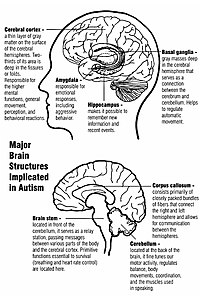
Early postictal serum lactate concentrations are superior to serum creatine kinase concentrations in distinguishing generalized tonic–clonic seizures from syncopes
Sign Up to like & getrecommendations! Published in 2017 at "Internal and Emergency Medicine"
DOI: 10.1007/s11739-017-1745-2
Abstract: Concentrations of serum creatine kinase (CK) and serum lactate are frequently measured to help differentiate between generalized tonic–clonic seizures (GTCS) and syncope. The aim of this prospective cohort study was to systematically compare these two… read more here.
Keywords: syncope; serum creatine; lactate; creatine kinase ... See more keywords

Divergence between serum creatine and cystatin C in estimating glomerular filtration rate of critically ill COVID-19 patients
Sign Up to like & getrecommendations! Published in 2021 at "Renal Failure"
DOI: 10.1080/0886022x.2021.1948428
Abstract: Abstract Background The clinical use of serum creatine (sCr) and cystatin C (CysC) in kidney function evaluation of critically ill patients has been in continuous discussion. The difference between estimated glomerular filtration rate calculated by… read more here.
Keywords: critically ill; ill covid; covid patients; glomerular filtration ... See more keywords

Case report: One child with an autism spectrum disorder who had chronically elevated serum levels of CK and CK-MB
Sign Up to like & getrecommendations! Published in 2022 at "Frontiers in Psychiatry"
DOI: 10.3389/fpsyt.2022.995237
Abstract: Some patients with autism spectrum disorder (ASD) exhibit elevated serum creatine kinase levels, which are believed to be associated with mitochondrial dysfunction. Although a few articles have reported this situation in the past and the… read more here.
Keywords: creatine kinase; autism spectrum; serum creatine; kinase ... See more keywords

Elevation of serum creatine kinase induced by anti-thyroid drugs: Two case reports and a literature review.
Sign Up to like & getrecommendations! Published in 2022 at "International journal of clinical pharmacology and therapeutics"
DOI: 10.5414/cp204269
Abstract: Anti-thyroid drugs (ATDs), such as methimazole (MMI) and propylthiouracil (PTU), are the most common treatment options for hyperthyroidism. Although effective, well-known adverse effects include agranulocytosis, toxic hepatitis, vasculitis, and arthralgias. Myalgia and elevation of serum… read more here.
Keywords: creatine kinase; anti thyroid; elevation serum; serum creatine ... See more keywords